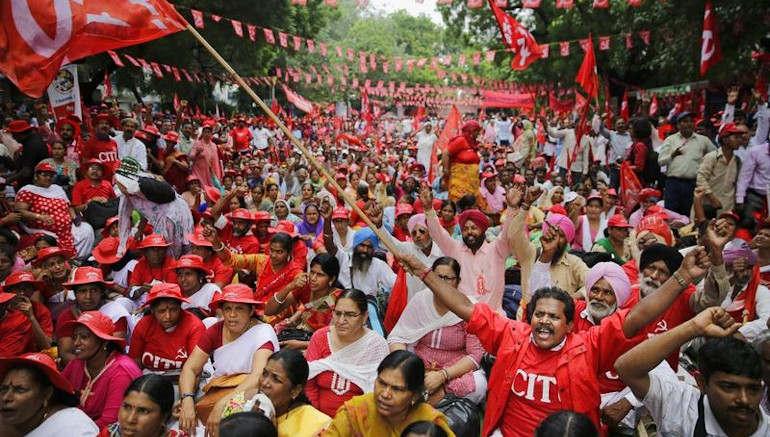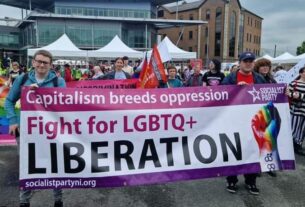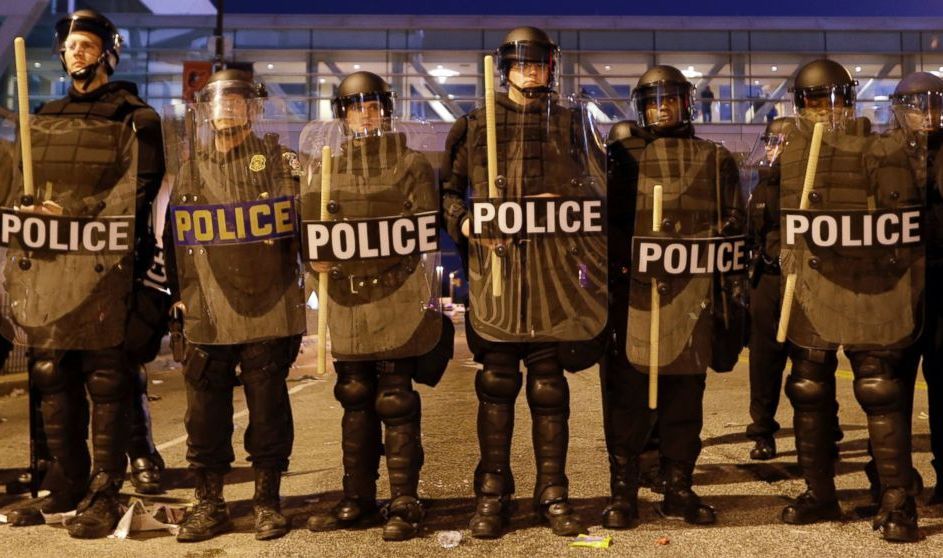 #OutsourcingMustFall campaign becomes point of reference for the working class
#OutsourcingMustFall campaign becomes point of reference for the working class
Across South Africa protests and strikes by workers and students are continuing across the higher education sector. Protests at the University of the Free State (UFS) grabbed headlines on Monday night when protesting black workers and black students were attacked by white rugby supporters at a campus rugby match. The protesters were only attempting to get the attention of the Vice Chancellor who was in the audience. That it was the victims of mob violence that were arrested, not the perpetrators, reveals the anti-working class agenda of the police. Earlier in the day, workers and students at UFS had been the victims of severe police repression. Thirty-four were arrested, including Trevor Shaku, a WASP Executive Committee member and National Coordinator of the Socialist Youth Movement (SYM – WASP’s youth wing). They were protesting to demand the implementation of an agreement reached with management to end outsourcing and double wages. The thirty-four are now released on bail. Video clips of black students receiving severe beatings at the rugby match went viral on social media and were shown in the news. The protester wearing the white shirt in the foreground of the video is leading WASP and SYM member Itumeleng Lecheko. Inevitably, racial tensions have increased across campuses. A reactionary white mob attacking a working class protest was reminiscent of the worse moments of racial polarisation in the struggle against the racist apartheid segregation system that ended in the early 1990s. Tragically, many of the whites that took part in the violence would have been acting against their own class interests in this mindless act. Despite the repression and mob-violence, today, UFS management agreed to all the workers’ demands – outsourcing will be end by the middle of next year, salaries will be topped-up and there will be no victimisations.
Language & transformation
One of the most progressive features of the #FeesMustFall movement that inflicted a humiliating defeat on the ANC government last October over planned tuition fee hikes was the unity of black and white students at many campuses. There remain burning issues around transformation – the opening up of campuses to black students and the creation of an inclusive and supportive learning environment – across the higher education sector. One of the key issues around transformation, especially at traditionally Afrikaner institutions such as the University of Pretoria and the North West University (NWU), is language policy. Black students are disadvantaged and excluded by the continuing prominence of the Afrikaans language in the culture of these universities. At NWU lectures are still conducted mainly in Afrikaans with a very inadequate and discriminatory translation provision for those not able to speak it. At the height of the #FeesMustFall movement, many of the new student activists who organised outside of the traditional youth movements put forward progressive solutions to the language question that addressed transformation whilst countering any distortion that transformation was an attack on the cultural rights of the Afrikaner community. But with the limits of that movement’s ‘spontaneity’ reached and the failure to form a new national student movement – something WASP and the SYM fought tooth and nail for – the traditional student organisations have been able to return. In particular, the ANC-aligned South African Students Congress and the Economic Freedom Fighters Student Command are using the language question for their own sectarian ends, fuelling the fire of racial polarisation with the crude slogan #AfrikaansMustFall. They have courted confrontation with the reactionary white student organisation AfriForum, who have been only too happy to join the ‘race war’ they have so long predicted. Violent clashes between these organisations have closed several campuses. The effect is a lifeline to the ANC government as the question of building a real movement that can guarantee transformation and continue the struggle for free education and an end to outsourcing are pushed into the background. The task of building a new national student movement uniting students from all backgrounds to transform higher education is urgent.
Workers’ struggle continues
The struggle of campus workers – cleaners, caterers, security guards and gardeners – has been the most important working class struggle in South Africa so far this year. Organised as the #OutsourcingMustFall campaign, the movement was initiated by WASP. The #FeesMustFall movement raised the status of outsourced workers, paid as little as R2,000 per month ($128) and denied all the benefits of permanent staff, as part of last year’s movement against fees. On a number of campuses agreements with management to end student protests included clauses agreeing to insource campus workers. Given confidence by the victory of the students, #OutsourcingMustFall was launched to organise workers to struggle for the implementation of agreements where they had already been won and fight for them where they had not. Under the leadership of WASP members, six education institutions in Tshwane (Pretoria) began an illegal strike on 11 January. Four of the institutions have agreed to end outsourcing linked to pay rises of between 100% and 300%, seeing a return to work. Strike action is continuing at Tshwane South College and Tshwane North College. Unfortunately, at the Tshawne University of Technology, management is not living up to its agreement not to victimise workers who took part in the strike. A mass meeting of workers on 26 February will decide whether to resume strike action there. The movement has spread to the Bloemfontein and Cape Town universities were WASP members are playing the leading role and the campaign is getting organised at the Johannesburg universities. However, it is not just campus workers who are part of the movement. The vacuum of working class leadership and the willingness of the working class to struggle has turned #OutsourcingMustFall into a point of reference for the working class more generally. Mametlwe Sebei, WASP Executive Committee member and the lead spokesperson for #OutsourcingMustFall was named “hero of the week” in a vote by readers of Pretoria’s daily newspaper. Joining the striking campus workers has been several hundred outsourced Tshwane Municipality workers. Workers from the transport sector, the supermarkets, the banks, prison workers and government departments are also organising under the campaign. A second phase of strike action under the leadership of #Outsourcing MustFall and WASP, predominantly in the private sector, is posed in the near future.



